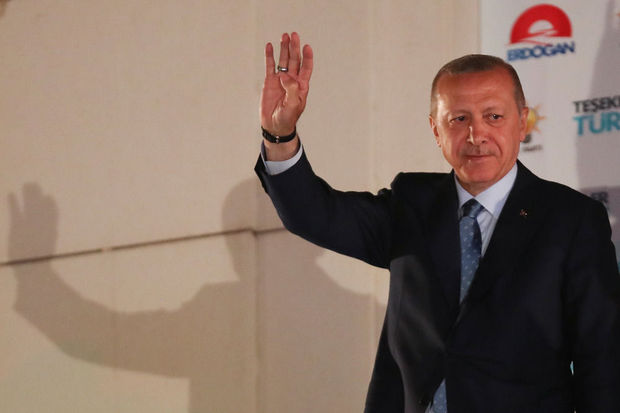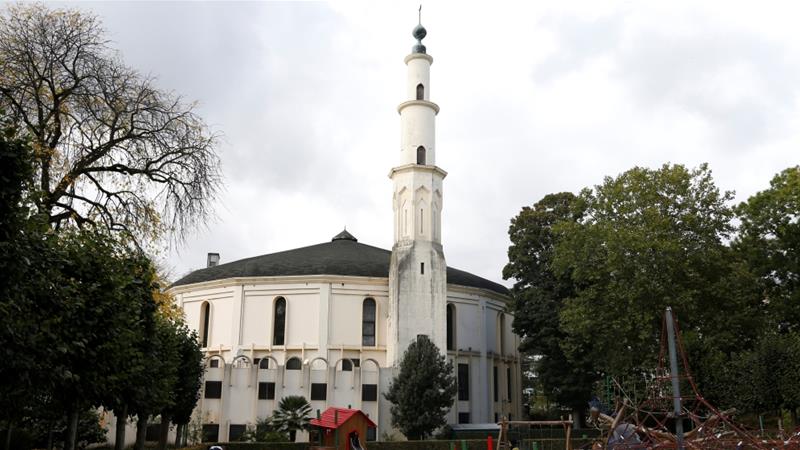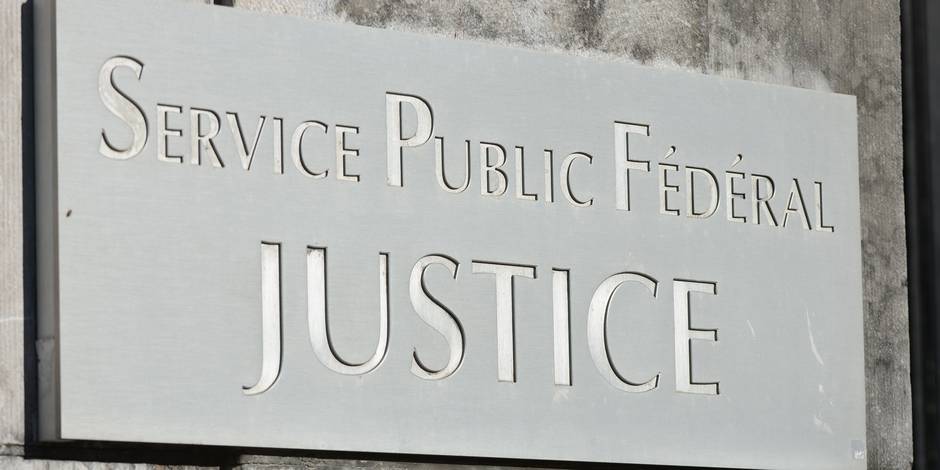BRUSSELS On a damp, gray day in March 2004, the Dutch traffic police stopped a Belgian driver for a broken headlight and accidentally stumbled onto a major investigation of Islamic radicals. The driver was Khalid Bouloudo, a sometime baker and former Ford autoworker born in Belgium. During a routine check, his name turned up on an Interpol watch list, for an international arrest warrant from Morocco charging him with links to a terrorist organization based in Morocco and involvement in suicide bombings in Casablanca in 2003. The arrest set in motion a cascade of events that underscored the extent of the radicalization of young Muslims across Europe – and a rapidly expanding and homegrown terrorist threat. The case suggests a loose arrangement of terrorist sympathizers around Europe who officials say have provided support to terrorist operations in a number of countries. This has presented even small countries like Belgium with difficult law enforcement problems, forcing them to employ new investigative methods and pass tougher laws. For more than a year, Belgian counterterrorism police officers had been gathering information about Bouloudo and his contacts in an investigation code-named Operation Asparagus, after the plump white asparagus grown in the eastern border area where they lived. His arrest abruptly cut short the operation. Fearing that Bouloudo’s contacts would go underground or flee, counterterrorism forces immediately carried out a series of raids throughout Belgium, dismantling over the next few months what they believed was a sophisticated network that supported the bombings in Casablanca and in Madrid in 2004 and that is also suspected of trying to recruit fighters for the insurgency in Iraq. In November, the case of the Asparagus 18, as the suspects might be called, goes to trial in Brussels. For the first time, Belgian prosecutors will be using an antiterrorism law that came into effect at the end of 2003 that specifically criminalizes a terrorist act and association with terrorists and imposes a prison sentence of up to 20 years. None of the 18 men indicted – most of them born in Morocco or of Moroccan descent and from 24 to 42 years old – have been charged with committing or even plotting a specific terrorist act in Belgium. Instead, the trial will highlight how over the past decade Belgium has become a support center for terrorists in Europe, offering safe haven, false documents and financing. Prosecutors hope to prove that the group provided material support, including lodging and false papers, to the bombers who killed 191 in Madrid last year. Among the other charges are the fabrication and the use of false documents, illegal entry and residence in Belgium, possession of illegal weapons and criminal association with a terrorist enterprise, in this case the Moroccan Islamic Combatant Group, or GICM, a loose-knit organization founded by Moroccans, many of whom were trained in Afghanistan before the Taliban were overthrown. Bouloudo is also believed to have trained there. “The case is a prototype of the new post-Afghanistan network – a little bit of everything: native-born radicals, immigrants from Morocco, travel to places like Saudi Arabia, connection to operations like Madrid,” said Glenn Audenaert, the director of Belgium’s federal police force. “It’s like handling a number of particles of mercury, toxic in themselves and even more toxic when they come together.” Despite a well-integrated Moroccan immigrant population that has lived and worked in Belgium for more than half a century, the country has become the destination of choice for many French-speaking immigrants who are put off by France’s intrusive security and intelligence services and tougher laws. It was in Belgium, for example, that the two Tunisian killers of Ahmed Shah Massoud, the Afghan resistance leader who was assassinated in September 2001, received logistical support. Disguised as journalists, they carried Belgian passports and had traveled to Afghanistan from Belgium. Even defense lawyers involved in the Asparagus 18 trial acknowledge the attractiveness of Belgium as a support center for international criminal and even terrorist activity. “Belgium has become a logistical base for these people,” said Didier de Quevy, a lawyer who has been involved in terrorist cases in the past and is representing one of the defendants. “They have come here because the penalties have been light.” Indeed, Belgium’s terrorism-fighting tools are limited, even though Brussels, as the headquarters of both the European Union and the North Atlantic Treaty Organization, is the closest Europe comes to having a Continental capital. It has no equivalent of a CIA and only a few intelligence officers working abroad. Only 50 police officers, detectives and special agents are assigned nationwide to monitor the Muslim population for potential terrorist plots. Investigators complain that suspects in Belgium can be held for only 24 hours – compared with up to four days in France – under the vague charge of suspicion of association with criminals. And the hurdles to use intrusive investigative methods, like wiretaps, to obtain evidence in terrorist-related cases are more onerous than in many other European countries. The signal that Belgian antiterrorism laws needed strengthening came in 2003, after the trial of Nizar Trabelsi, a Tunisian former pro soccer player and cocaine addict, for a plot to drive a car bomb into an American air base in northeastern Belgium. Despite a confession and material evidence, prosecutors were forced to think creatively to win the maximum sentence – 10 years in prison – using, among other laws, one from 1934 that banned all private militias. If the new law had been in effect, investigators said, Trabelsi’s sentence could have been doubled. In the Asparagus 18 case, prosecutors will be relying on information gathered from foreign governments and foreign intelligence sources, a practice that defense lawyers have vowed to challenge. Wiretaps and surveillance tapes will also be introduced as evidence, which has been unusual in the past. Their admissibility will be tested under the new law for the first time. Particularly distressing for Belgian investigators is that four of those standing trial were born and reared in Maaseik, a picturesque 13th-century Flemish town of 24,000 on Belgium’s eastern border with the Netherlands, where they were also arrested. A small Moroccan population has lived in the town since the 1950s, when the region needed low-cost workers for the coal mines, now defunct. Maaseik has no slums. Even the poorest part of town, branded “Little Chicago” by some of the Flemish inhabitants, has clean streets and flower boxes in the windows. The first visible sign of Islamic radicalization came in the past few years, when a handful of Muslim women began appearing in public with their faces veiled in black. “I started receiving phone calls from the people of the city,” recalled Maaseik’s mayor, Jan Creemers. “‘There is something bizarre happening here, we see strange veiled women,’ they said. Mainly old ladies calling me, terrified, saying they were sitting on a bench, and when they turned around they all of a sudden saw these strange figures appearing all in black. They almost had heart attacks.” The city imposed a fine of $150 on any woman who refused to reveal her face, saying it was a security issue. The only woman in town who refused was the wife of Bouloudo. Bouloudo provides an interesting portrait of the new, homegrown militant. According to Creemers and a friend of Bouloudo, he grew up in public housing and went to a Catholic elementary school, where he attended a monthly Mass and optional catechism classes. The friend, a Belgian who declined to be identified for fear of reprisals, said that as teenagers, they went to Mallorca, Spain, and a casino in the Netherlands together. There are photos of Bouloudo partying and drinking alcohol, habits that he hid from his parents. “Bouloudo spoke very good Dutch, was very well dressed and very integrated,” Creemers said. “He was part of the city. I don’t understand wha
t the trigger was. It’s a mystery to me. The Moroccans here are not poor people; they are not isolated.” But for Bouloudo’s sister, Samira el-Haski, who is married to one of the other defendants in the case, there has been alienation, not acceptance, by the town. “No matter what,” she said, “we Moroccans have always been dirty aliens for them.” As in the case of many other young men in Europe suspected of terrorism, family members seem ignorant of their activities. According to Haski, her brother and husband are innocent. “My brother? My husband? Terrorists? This is crazy. This is just plain stupid,” she said. “They wouldn’t hurt a fly. GICM? We didn’t even know what it was.” Elaine Sciolino and H_l_ne Fouquet
Terrorists in Europe find a base in Belgium






